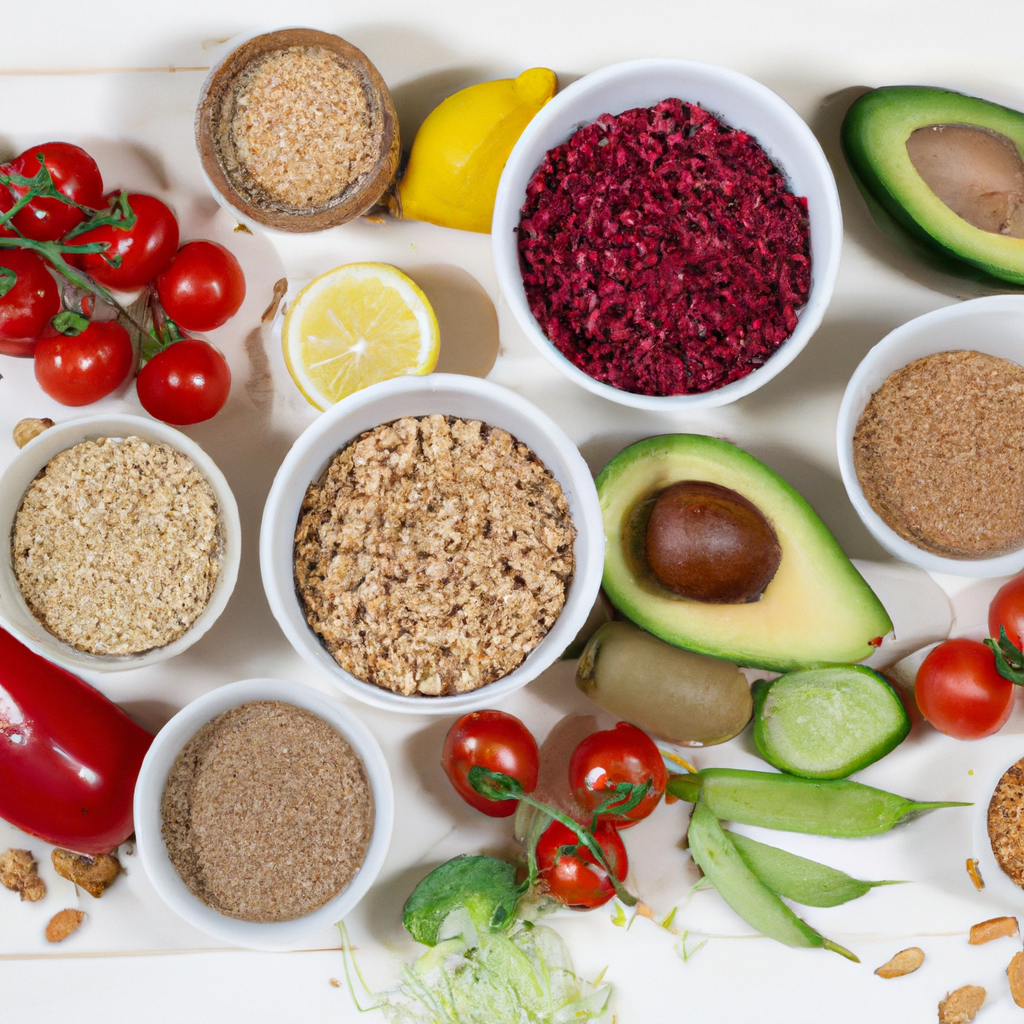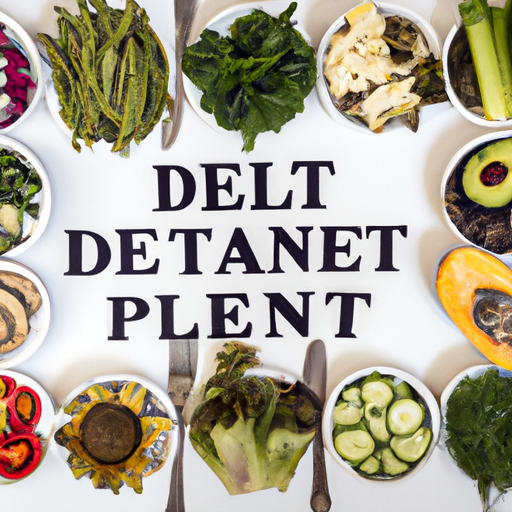Are you looking for a dietary lifestyle change? Plant-based diets have become increasingly popular over the last few years, with an increasing number of studies published about their benefits. Have you ever wondered what these different plant-based diets are? Do you want to learn more about what type of diet may be best for your lifestyle? This article will help to shed light on the various popular types of plant-based diets, to help you make an informed decision on which one is most suitable for you and your health goals.
1. Exploring the World of Plant-Based Diets
A plant-based diet is an eating style that focuses on avoiding animal products and consuming more plant-based foods instead. It is gaining more and more traction as more evidence points to its health benefits. As you explore the world of plant-based diets, here are the main things you need to keep in mind:
- Nutrition: Although some plant foods are rich in beneficial vitamins and minerals, a well-rounded plant-based diet should include variety and balance to ensure adequate nutrition.
- Types: There are multiple types of plant-based diets, such as vegan, vegetarian, and flexitarian. Each type has its own dietary and lifestyle rules, so make sure to research thoroughly before deciding which one to follow.
Once you understand the idea of the plant-based diet and its various types, you can start experimenting in the kitchen! Try out different plant-based recipes and find out which ingredients you enjoy the most. With a little planning and creativity, anyone can establish a well-balanced, nutritious plant-based diet that fits their particular needs and preferences.
2. Uncovering the Benefits of Eating Plants
Oftentimes, we as humans overlook the innumerable benefits of incorporating plants into our diets. We settle in an advantageous yet unhealthy food cycle, perpetuating the standards of eating foods that are nutritionally inadequate. As it turns out, plants represent a powerhouse of essential nutrients that offer health-related rewards.
Eating a variety of plants can provide our bodies with important vitamins, minerals, and antioxidants. For starters, incorporating dark leafy greens into our diets guarantees high levels of calcium, which is essential for strong bones and teeth. Cruciferous vegetables, such as broccoli and cauliflower, contain Vitamin C necessary to maintain good health, and can even help reduce cancer risk. Furthermore, vegetables such as artichoke, asparagus, and garlic have proven to reduce blood pressure levels.
- Vitamins – essential building blocks of nutrition
- Minerals – regulate and maintain bodily systems
- Antioxidants – protecting cells from damage
Eating plants also allows us to take advantage of their anti-inflammatory and detoxifying properties, thereby aiding digestion and boosting our immune system. In addition, research shows that regular consumption of plants can contribute to a decrease in chronic diseases, a major cause of morbidity in the United States.
- Anti-inflammatory – reducing inflammation in the body
- Detoxifying – strengthens the immune system
- Disease reduction – lessening the risk of chronic diseases
As the evidence mounts, consuming plants on a regular basis presents our bodies with crucial nutrition support while protecting us from a range of diseases. Eating plants helps us tap into our true potential, ensuring that we maintain the highest level of wellbeing.
3. Common Plant-Based Diets to Consider
Vegetarian
Many people are drawn to a vegetarian lifestyle due to its inclusivity and commitment to animal welfare. Those following vegetarianism abide by a diet free of meat, poultry, and fish. Instead, meals are typically filled with fruits, grains, vegetables, and nuts. With the help of various online resources, you can easily customize your vegetarian diet to meet your own nutritional needs.
Switching to a vegan diet may sound challenging at first, but with enough research and commitment to the lifestyle, it can become far more convenient. This diet involves the elimination of all animal products—including eggs and dairy. Replacing animal-based products with their plant-based counterparts such as dairy-free cheeses, vegan ice cream, and plant milks can make the transition far easier.
Raw food diet
The raw food diet consists of raw fruits, veggies, nuts, legumes, and plant-based proteins such as beans. Eating raw foods is a great way to maximize the nutrient and enzyme content that is lost in the cooking process. You can get creative by experimenting with a range of raw dishes such as pad Thai made with zucchini noodles, vegan sushi, kale salads, and avocado-based desserts.
Flexitarians are those who prioritize a mostly plant-based diet but also enjoy animal products in moderation. Dishes that are mainly plant-based provide the flexibility needed to incorporate animal-based proteins into the diet without having to give up on the vegetarian lifestyle. Adding nutritional yeast to dishes is a great way to add a cheese-like flavor to the meal. The flexitarian lifestyle is a great beginning for those wanting to make a gradual transition to a more plant-based diet.
4. Making the Change to A Plant-Based Diet
Making the switch to a plant-based diet doesn’t have to be difficult. Here are some tips and suggestions to make it easier:
- Give it Time. Take it one day at a time and try to replace one meal with a plant-based option per week. Over time, you’ll be able to increase the number of plant-based meals you have in a day, slowly but surely.
- Stock Up. Make sure your kitchen is stocked up with plenty of healthy plant-based options. Examples include beans, lentils, quinoa, tofu, tempeh, grains, nuts, even seaweed and micro-greens.
- Eat out. Look for restaurants that have plant-based options. Many restaurants have vegan menus now, from ethnic cuisines to classic American dishes.
If you’re not sure where to start with plant-based meals, try out some vegetarian recipes or vegan cookbooks. You’ll be surprised at how easy it is to make tasty plant-based dishes. There are also plenty of vegan meal delivery services available that can help make the transition easier by providing pre-made vegan meals or ingredients delivered to your door.
Finding the right plant-based diet for you is not a one-size-fits-all venture—but it can lead to a more vibrant and healthier life. With the myriad of plant-based diets now available, these healthy habits can take shape in a variety of ways, exposing you to the expanding world of plant-based nutrition. And, just maybe, open the door to a more sustainable future for us all.
In recent years, the popularity of plant-based diets has grown dramatically, with many people making the decision to switch their diets from animal-based to plant-based. Plant-based diets are typically composed of food derived from plants and exclude meats, dairy, eggs, and other animal-derived products. There are a number of different types of plant-based diets available today, each with its own unique focus and nutritional benefits.
The most well-known type of plant-based diet is veganism, which excludes all animal-derived products, including dairy and eggs. Vegans typically rely heavily on vegetables, fruits, grains, legumes, nuts, and seeds. This type of diet has been linked to health benefits such as improved heart health, lower LDL cholesterol levels, and lower risk of type 2 diabetes and certain types of cancer.
Another popular type of plant-based diet is vegetarianism. Vegetarians avoid eating meat, but may eat dairy and eggs. Other plant foods such as vegetables, fruits, grains, legumes, nuts, and seeds are the main components of this diet. Studies have found that vegetarian diets are associated with a lower risk of obesity, cardiovascular disease, and type 2 diabetes.
Flexitarians, or “flexible vegetarians”, combine elements of both plant-based and animal-based diets. Flexitarians eat mostly plant-based foods, such as vegetables, fruits, grains, legumes, nuts, and seeds, but may occasionally incorporate small amounts of fish, poultry, or dairy products into their diets. This type of diet has been associated with weight loss and decreased risk of cardiovascular disease.
The Mediterranean diet is a plant-based diet that focuses on whole, unprocessed foods. It includes plenty of vegetables, fruits, whole grains, legumes, nuts, and seeds. This diet emphasizes the use of olive oil as the primary source of dietary fat, as well as moderate amounts of fish and limited amounts of dairy and meat. Studies have found that the Mediterranean diet is associated with improved health outcomes, such as a decreased risk of heart disease, stroke, cancer, and type 2 diabetes.
Finally, raw veganism is a type of plant-based diet that avoids all animal products and includes only raw, uncooked foods. Foods eaten on a raw vegan diet typically include fresh vegetables and fruits, nuts, and seeds. Although there is limited scientific research on the impacts of this diet, some studies have suggested that it may help improve cholesterol levels and reduce inflammation.
Whichever type of plant-based diet you choose, it is important to ensure that your diet is balanced and contains an adequate variety of nutrient-rich foods. If you are considering changing your diet to a plant-based one, it is important to speak with a health care provider or dietician for further advice.
